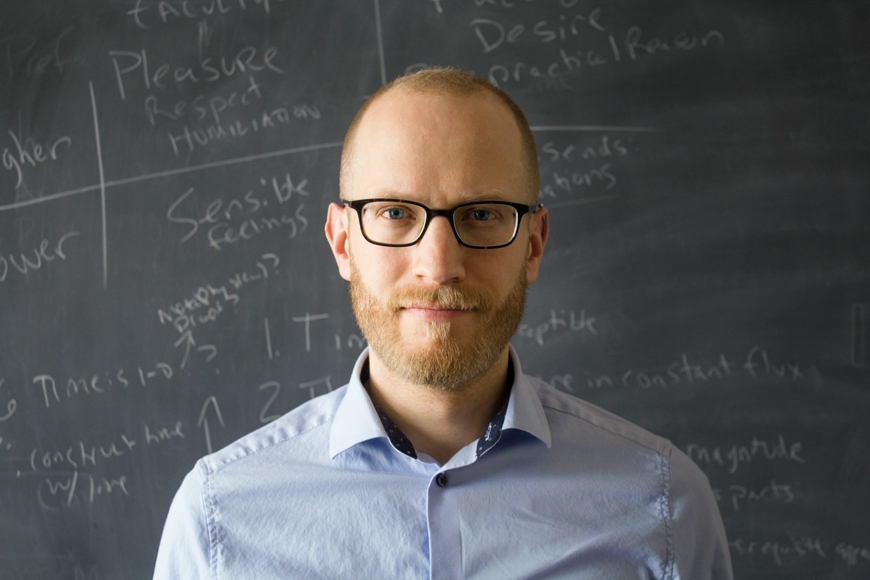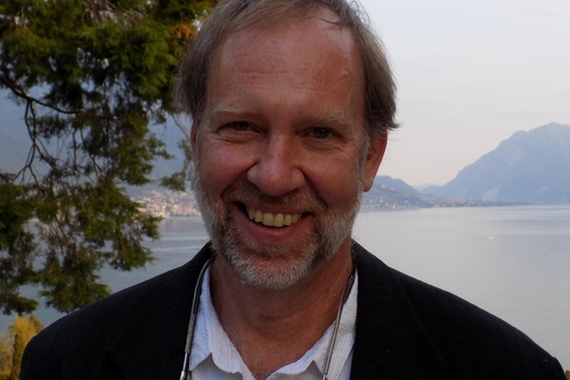Kant on Chemistry and the Inexact Sciences
How do the sciences relate to one another? Is chemistry in some sense “reducible” to physics? What is the role of abstract thought in our investigation of the empirical world? These sorts of questions continue to keep contemporary philosophers of science up at night. But they also worried philosophers of the eighteenth century. Philosophy professor Bennett McNulty devotes much of his scholarship towards clarifying how one of these eighteenth-century philosophers, Immanuel Kant, grappled with such questions. Through close textual interrogation of Kant’s theoretical and scientific writings, as well as those of the major German physicists and chemists to whom Kant was exposed, McNulty seeks to situate Kant in his historical and scientific context. He describes his current research program as attempting to provide a comprehensive account of Kant’s views on the “inexact sciences,” those which, for Kant, do not allow for the application of mathematics, namely chemistry, psychology, anthropology, and biology.
What is Chemistry for Kant?
McNulty first became interested in Kant’s views on the inexact sciences as a graduate student at the University of California, Irvine. “I was taking a course on Kant’s Critique of Pure Reason,” he recounts, “and I noticed that Kant makes some rather oblique remarks about chemistry in the preface to the second edition.” McNulty wondered how the scientific advancements of Kant’s day affected his philosophical views. “What were the developments in chemistry at the time,” McNulty asks, “and what do they illuminate about Kant’s philosophy?” Kant’s brief comments about chemistry in the Critique of Pure Reason led McNulty to Kant’s Metaphysical Foundations of Natural Science, a work underappreciated in Kantian scholarship until relatively recently, in which Kant expounds his views on the sciences in more detail.
Published in 1786, between the first and second editions of the Critique of Pure Reason, McNulty explains that the Metaphysical Foundations is closely connected to the critical project of this first of Kant’s Critiques. “What Kant is trying to do in the Metaphysical Foundations is to take the metaphysical picture from the Critique of Pure Reason and investigate how it grounds the possibility of the sciences, particularly Newtonian physics.” Having established in the Critique of Pure Reason what the human mind and the world we experience must be like, Kant tries to show in the Metaphysical Foundations how this makes science possible.
Kant’s Hierarchy of the Sciences
In pursuit of this general aim, Kant classifies the various sciences according to the respective roles they each accord to abstract thought. McNulty explains that traditionally Kant is interpreted as dividing the sciences into two classes: the “proper science” of physics, and the “improper sciences”—everything else. The proper science of physics is distinguished by the fact that its laws can be, in principle, derived from thought alone, independently of experience. The improper sciences, on the other hand, have only contingent laws which must be validated through observation and experiment. But McNulty’s close reading of Metaphysical Foundations has led him to believe that the story is more complicated than this traditional interpretation. “I started with Kant’s deceptively simple claim in the Metaphysical Foundations that chemistry is an improper, but rational, science,” says McNulty. He argues that the Metaphysical Foundations elaborates a kind of hierarchical scaffolding of the sciences, arranged into three classes.
At the top of the hierarchy is physics, which is both proper and rational. Physics, McNulty explains, is rational for Kant because it has laws, and proper because these laws are necessary and can be derived independently of experience. Kant holds that the laws of motion, for example, are derivable from the essential, conceptual nature of matter. We do not, then, infer through observation that matter is subject to Newton’s laws of motion so much as come to realize that matter must be subject to such laws in order to be observed at all. On the next rung of the hierarchy are the improper rational sciences, such as chemistry. As a rational science, chemistry has laws, but unlike the proper science of physics, its laws are only discoverable through empirical observation and experimentation, rather than from the essential natures of its objects. Finally, there are the improper, non-rational sciences, such as psychology. According to McNulty, for Kant, the laws of improper, non-rational sciences, if they exist at all, are discoverable neither through purely abstract thought nor from empirical observation and experimentation. In other words, if improper, non-rational sciences such as psychology have laws, these laws cannot be apprehended by human beings.
Chemistry and the Faculty of Reason
McNulty’s interpretation sheds light on his initial questions concerning Kant’s view of chemistry. Whereas in physics, laws are derivable from thought alone, through what Kant calls the “faculty of understanding,” the story for chemistry is not so simple. Chemical laws, by contrast, must be validated through empirical observation and experiment. On what basis, then, can we say that the laws of chemistry are really laws and not just empirical regularities? McNulty argues that for Kant, the laws of chemistry are grounded, not in the faculty of understanding, but in the faculty of reason. While the faculty of understanding deals with concepts and their application to our experience, the faculty of reason reaches beyond the realm of possible experience, positing ideas that regulate, motivate, and systematize our knowledge. In the case of chemistry, argues McNulty, these ideas are the elements. “Through the faculty of reason, which pushes us to ultimate explanations of things, we idealize and postulate the elements as the foundation of chemical explanation and laws,” McNulty explains, “but as constructs of reason, these elements are beyond the possibility of experience. It’s precisely our ability to go beyond our experience and idealize that grounds chemistry for Kant”
A consequence of McNulty’s interpretation is that, for Kant, chemistry is irreducible to physics. In other words, chemical laws, grounded in the faculty of reason, cannot be reduced to or derived from the laws of physics. “Kant is one of the earliest standard-bearers of this position,” McNulty elaborates, “and this makes him especially interesting given that he was working at a time when the nascent science of chemistry had broken away from alchemy and was becoming an academic discipline. I don’t think his views are going to advance the contemporary debate on this question,” he adds, “but he is notable as a forerunner of the irreducibility of chemical laws.”
Tracing the implications of Kant’s deceptively simple claim that chemistry is an improper, but rational, science, McNulty has offered a novel interpretation of Kant’s views on the inexact sciences and their connection to his broader theoretical philosophy. Such an approach highlights the systematic and interconnected nature of Kant’s thought. “Kant’s system is a massive web of ideas,” says McNulty, “and what I like to do is find a particular point in that system, hold it fast, and try to see how it connects to other points in the system. What contours of the system does this reveal? What changes do you have to make in the system elsewhere to accommodate that point?”
This story was written by an undergraduate student content creator in CLAgency. Meet the team.



